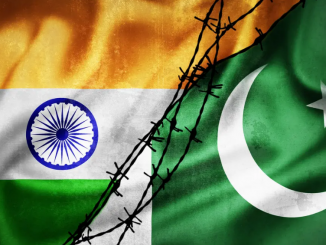
Iran’s and U.S.’ flags are seen printed on paper in this illustration taken January 27, 2022. REUTERS/Dado Ruvic/Illustration/File Photo Purchase Licensing Rights
| Published April 19, 2025
Iran has expressed willingness to accept certain restrictions on its uranium enrichment program during recent talks with the United States but demands firm guarantees that former President Donald Trump will not withdraw from a new nuclear agreement if re-elected. This request stems from Trump’s 2018 decision to abandon the 2015 nuclear deal and reimpose tough sanctions.
The discussions, which have resumed after a round in Oman and ahead of another in Rome, reflect cautious optimism but also deep mistrust, especially as Trump maintains a hardline stance. Iran insists on preserving core elements of its nuclear program, including its enrichment capacity and missile development, which Supreme Leader Ayatollah Ali Khamenei has marked as non-negotiable red lines.
Tehran has signaled openness to collaborating with the UN nuclear watchdog to prove the peaceful nature of its nuclear activities. In exchange, it expects the U.S. to promptly lift sanctions on its oil and financial sectors.
While both countries affirm a commitment to diplomacy, significant divisions remain, particularly regarding demands from the U.S. for Iran to halt and eliminate its uranium enrichment.
The outcome of these negotiations could have far-reaching implications for regional stability and the future of non-proliferation efforts. As talks continue, the international community watches closely, recognizing the profound impact a renewed agreement—or lack thereof—could have on global security dynamics.
🧾 Conclusion
The ongoing U.S.-Iran nuclear negotiations represent a critical moment in international diplomacy, balancing the need for regional stability against the complexities of trust and compliance. While a new deal could effectively limit Iran’s nuclear capabilities and open the door for economic relief, it also comes with significant risks. Iran’s insistence on guarantees that future U.S. administrations, particularly under Trump, won’t exit the agreement again is a major challenge, highlighting the fragility of diplomatic agreements in a volatile political environment.
If successful, the deal could restore international credibility and contribute to Middle Eastern stability, but only if the terms are strictly enforced. However, the unresolved issues surrounding Iran’s missile program and its broader regional ambitions mean that a nuclear agreement might not fully address all security concerns, especially for U.S. allies like Israel and Saudi Arabia.
Ultimately, the success of these negotiations will hinge on whether both sides can navigate their mistrust and find common ground on issues that have long divided them. The stakes are high, not just for U.S.-Iran relations but for global security as a whole.
SOURCES: REUTERS – Iran wants guarantees Trump will not quit a new nuclear pact, Iranian official says
THE TIME OF ISRAEL – Iran says it will never agree to dismantle uranium centrifuges, eliminate stockpile
AL JAZEERA – Iran has ‘doubts’ about US intentions ahead of nuclear talks





Be the first to comment